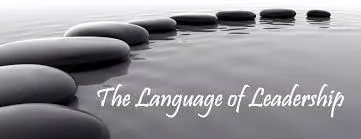No matter who you are, where you work and what you do, it is possible to become an amazing communicator in a short period of time using three simple secrets. These are proven techniques that can significantly enhance the impact you have on others but it is important to a) remember to start using these techniques consciously and consistently and b) to use these in a particular sequence. Try these techniques and you will be blown away by the effect these have on your day-to-day interactions with people.
Secret #1 – Acknowledge the Person and Create the Connection
No great communicator has ever just started an interpersonal interaction without first acknowledging the person in front, saying something like “Hello, how are you today?” and creating a personal connection first by smiling and putting the other at ease. The best presenters never just launch into their Powerpoint slides. They first acknowledge their audience and connect with as many of them as possible. A professional salesperson would never launch into a product spiel with a new client without first building some kind of relationship.
The effect of creating a connection first is huge. There is more to this than just words. In fact, the message you convey to the other party when you start like this is that you care about them and this is not just about completing some communication formality. It is not always easy to do this because our tendency particularly when we are stressed out or under pressure at work is to jump right to the point. One way to resist the impulse to just get down to business is to say to yourself “this person is more important to me than my agenda“.
Greeting your colleagues first thing in the morning with a smile is a good way to start. For all my ills as a manager, one thing that I have learned to do consistently is to walk up to my colleagues each morning to greet them with a hello and a handshake.
Remember, building the relationship first is key. If you forget everything else, don’t forget this.
Secret #2 – Wait Before Offering Critical Comments or Judgment
It’s easy to say this but much harder to do. I have been guilty on many occasions when I found myself giving angry or judgmental feedback to family, friends and colleagues. But I have also found on other occasions where I delayed a knee-jerk reaction that I was able to offer more objective and valuable feedback without causing offense by simply waiting for a day or so. It is incredible how rational and objective one can become in the space of just a few hours!
There is no rule that says you have to communicate what you think and feel immediately. There is also no rule that says that every error, every miscalculation, every trespass has to be held to account. It is always better to think through a potential conversation before having it rather than having the conversation first then regretting it. This is not about avoiding a frank discussion; it is about avoiding an angry, emotional outburst that can hurt and humiliate.
The thing to remember here is that if you have something nice to say, do it straight away. If you do not have something nice to say, wait!!
Secret # 3 – The 50:50 Rule – Listen As Much As You Speak
Now the truth is that the actual rule is called the 60:40 Rule or the Listen More Than You Speak Rule but I have taken the liberty to alter it somewhat to make it more do-able for you and for me. If you are who you are and your autopilot subconscious behavior is engaged, listening as much or more than you speak is not going to happen. So you need a cue to remind yourself. This could be a stickie on your laptop screen or a note somewhere on your desk or an hourly beep from your phone that prompts you to shut up and listen.
Amazing communicators ask a lot of questions then listen to the answers. This way, you are still leading the conversation but not hijacking it. By the way, listening well to people also helps to build and cement relationships and that brings us back to Secret #1 so we can close the loop.
Final two words? Application, consistency!
When you have tried using these techniques and observed the impact these have, please remember to leave a comment here about your experience.


